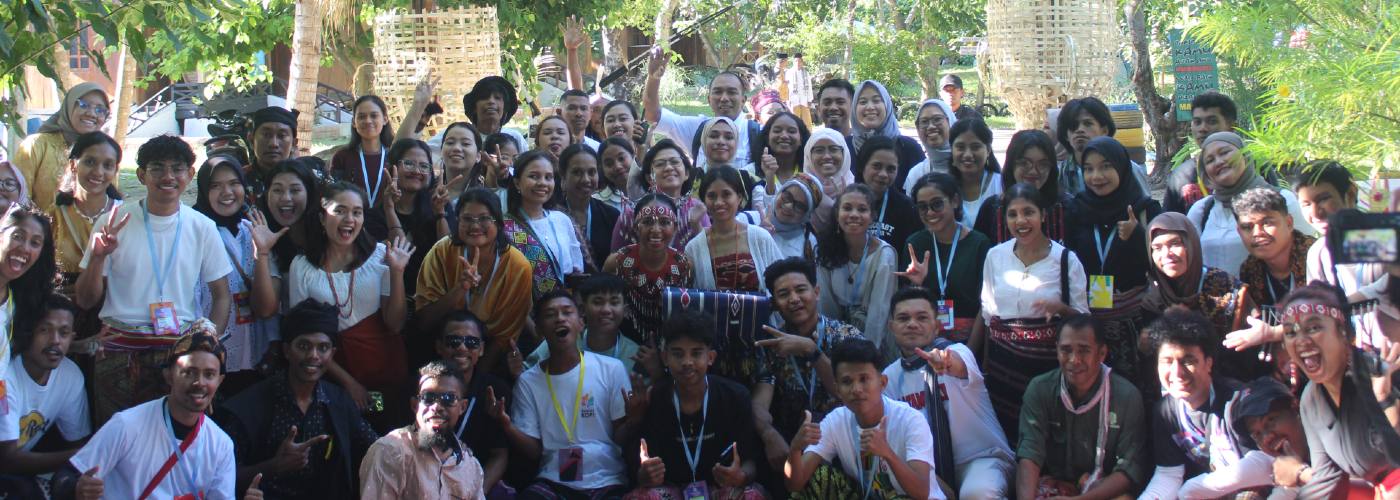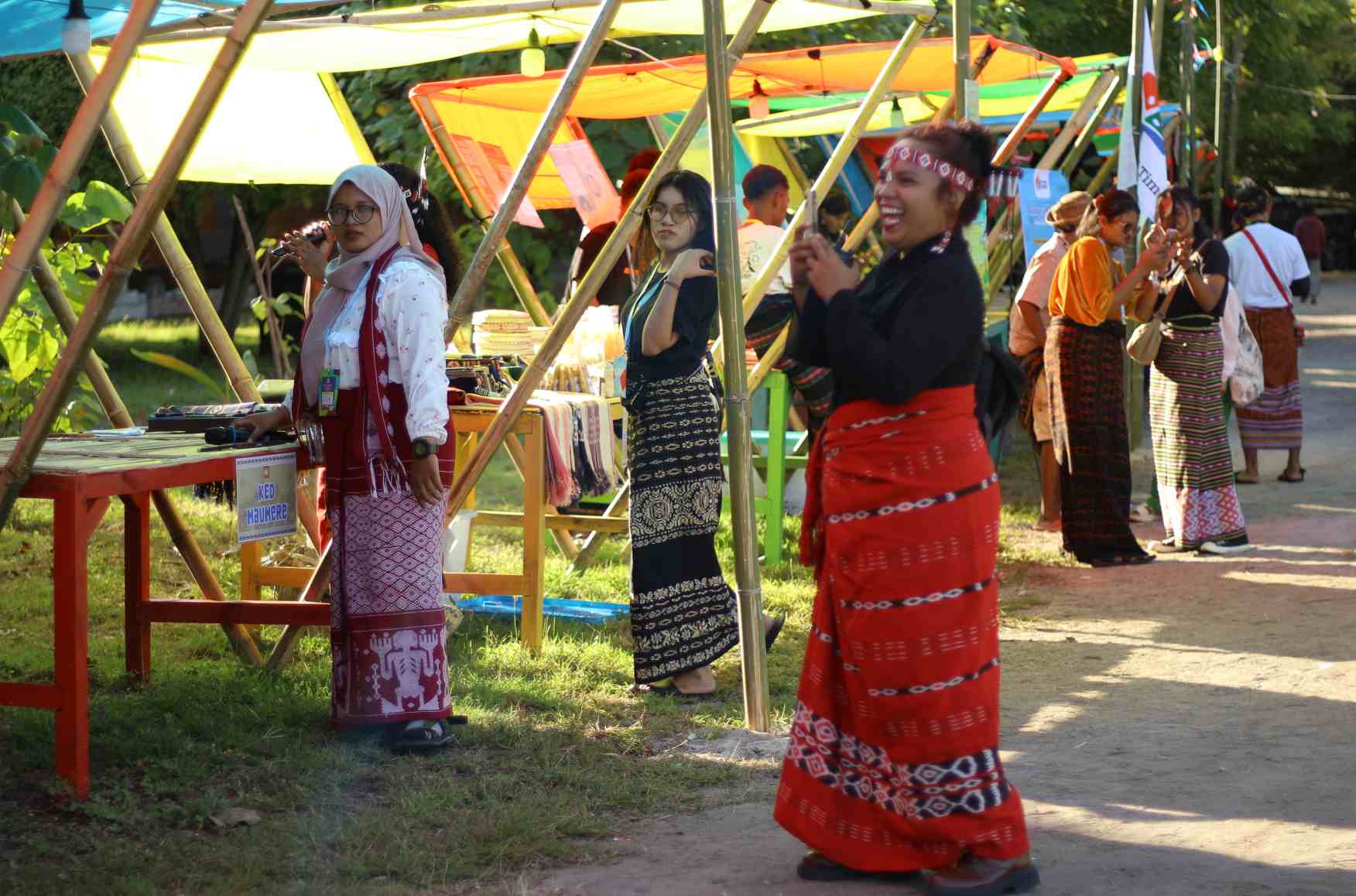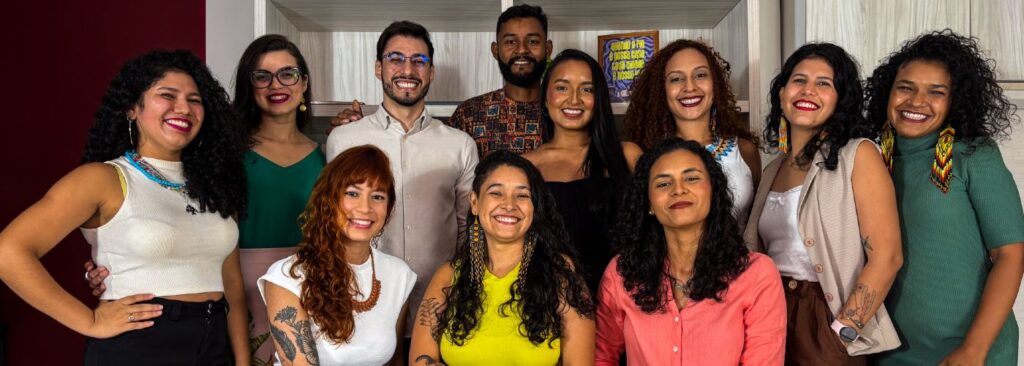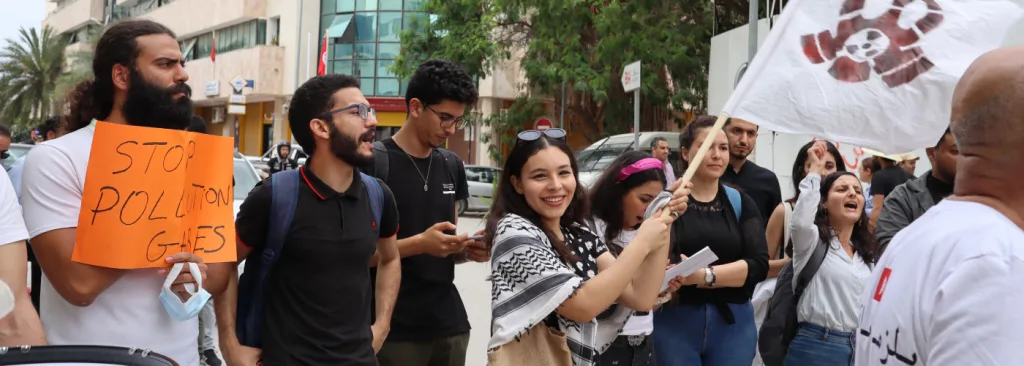Most of the traditional funds designed to combat the climate crisis rarely reach the places and people most impacted by climate change. Grassroots organizations and groups seem to be invisible to traditional funders because of their smaller size and the informal contexts in which they operate. It is often also difficult for these organizations to meet the bureaucratic requirements set by major international funds, donors, and financial institutions.
One of these organizations is the Flobamoratas Executive Committee, the largest network of youth for climate action in the region of Nusa Tenggara Timur – and possibly in all Indonesia. Recently, they received funding through the Next Level Grant Facility (NLGF) – a climate finance mechanism (see bottom of page) from our Voices for Just Climate Action program. The mechanism focuses on supporting locally-based climate action at the community level and provides emergency funds for environmental defenders and climate disasters.
Funding climate action locally
The Flobamoratas Executive Committee has been connected to our Voices for Just Climate Action (VCA) program in Indonesia since 2021. It received around 9,450 euros from the fund, which it dispersed among its Regional Executive Committees that serve dozens of communities across 12 districts in the region. We spoke with Eda from the Executive Committee and Gerson from the Regional Committee on Alor Island about how they made the most of the NLGF’s modest but very welcome contribution.
On Alor, the funding was used to start rehabilitating coral reefs. Fifty-two spider web constructions were placed in the waters along Maimol Beach, housing a total of 100 coral seedlings. “The spider web constructions go three to seven meters deep to avoid damage caused by fishing. Transplanted coral with this method can grow well if maintenance is routinely conducted,” Gerson explained.
Coral transplantation not only restores the coral reef but also promotes ecotourism. “Our plan is to collaborate with schools to educate students about coral reefs. We are also planning to create a business focused on the adoption of coral reefs, which includes offering packages for coral reef planting,” Gerson continued. “The economic advantage of this would be supporting local tourism, while at the same time it’s an important first step toward nature conservation,” Eda added.
Other regional committees’ uses of the NLGF grant
In Maumere and Nagekeo Regency, the NLGF fund supports the production of virgin coconut oil commodities. The business is doing well as the products have found regular customers and received several repeat orders. Once again, the NLGF grant has sparked local economic gains that in turn supply sustainable funding for nature rehabilitation and climate action.
Bajawa is an area well-known area for coffee production in Indonesia. Its coffee has a distinctive flavor and characteristics, so it’s not surprising that the regional committee there chose a sustainable coffee production-based operation to invest in. But it’s not all about products. In West Manggarai, the regional committee commissioned a dance performance and a short film to convey messages on environmental issues, and the one in Lembata organized a public discussion about the local impacts of climate change.
Moving towards sustainability
Eda sees NLGF funding as crucial for their organization because it helps support organizational sustainability. Part of the profits from any small local production funded by the NLGF can also be used to finance organizational activities such as climate campaigns, making their climate action more independent. “At least in the future we will have our own capital to fund climate action, even though it is small. For example, we now have funding to organize discussions or send members to events. We do not rely solely on donors anymore,” she said optimistically.
For Eda, NLGF serves as an example, showing young people the importance of being open to alternative support or funding, while staying aware of their autonomy and values. In this way the support does not compromise their climate justice principles.
The Voices for Just Climate Action small grants mechanism
The Voices for Just Climate Action alliance’s Next Level Grant Facility (NLGF) distributes 3.5 million euros in seven countries (Bolivia, Brazil, Indonesia, Kenya, Paraguay, Tunisia. and Zambia). Its small grants foster a bottom-up approach to decision-making, where communities and local allies play a key role in identifying priorities and defining solutions to climate change. These communities are better placed to identify where most needs are, how these can be eased effectively, and how natural resources can be managed in a sustainable, just and inclusive manner.









